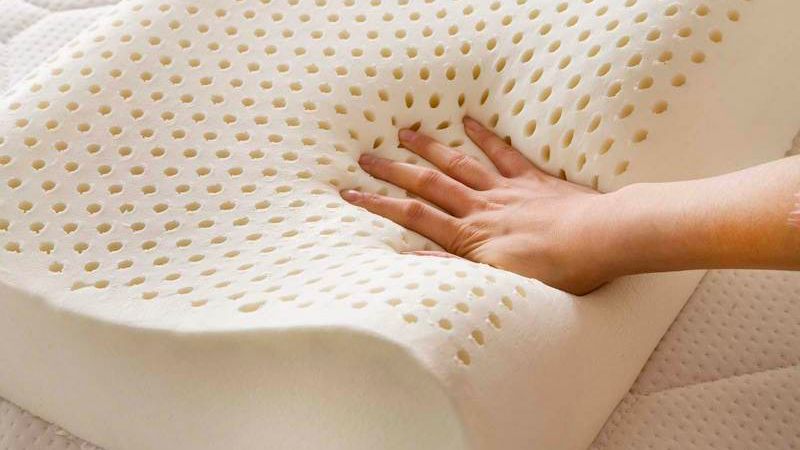Having a comfortable mattress is essential for a good night’s sleep and overall well-being. In this article, we will provide tips and guidance on choosing the right mattress for your specific needs.
1. Tips for selecting a mattress for optimal health
Based on your health condition
- Consider your physique: If you tend to get hot at night, we recommend choosing spring mattresses, coconut fiber mattresses, or mattresses made from compressed cotton. For those who sweat during sleep, thin and lightweight mattresses are ideal for easy cleaning.
- Allergies: If you are prone to allergies, especially dust and mold, rubber mattresses or coconut fiber mattresses are excellent options due to their antibacterial properties and breathability.
- Back pain: Individuals experiencing back pain or lupus should opt for natural latex, cotton, or organic bamboo mattresses. It is best to avoid foam, plastic, or synthetic mattresses.
Based on your sleeping position
- Back sleepers: Depending on personal preference, spring mattresses, coconut fiber mattresses, or compressed cotton mattresses are suitable for this sleeping position.
- Stomach sleepers: Choose a mattress with medium firmness to maintain proper spinal alignment.
- Side sleepers: Opt for a soft mattress or consider using a mattress topper to ensure comfort and support for the shoulders, arms, and hips.

Tips for choosing a good mattress for health
Based on your age
- Children: It is best to choose soft mattresses made from natural rubber, bamboo, cotton, or coconut fiber. These materials have excellent antibacterial properties and are gentle on children’s skin.
- Adults: Depending on individual physical needs, consider compressed cotton mattresses or rubber mattresses, among other options.
- Elderly: Choose mattresses with medium firmness to provide adequate support without being too hard or soft. This can help alleviate back pain and promote better sleep quality.
Based on climate
- Hot and humid areas: Choose thin and lightweight mattresses that are easy to clean and have good moisture absorption properties.
- Cool and cold areas: Opt for thicker mattresses with good insulation or consider using mattress toppers for added convenience in cleaning.
2. Types of mattresses beneficial for health
Spring mattresses
Spring mattresses contain a system of steel cores with different springs that provide elasticity and support while sleeping. These mattresses offer a comfortable and cozy sleeping experience.
For the best results, choose spring mattresses with a thickness of approximately 20cm and check the number of padding layers, spring cores, and the quality of the outer fabric covering the mattress.

Spring mattresses
Rubber mattresses
Rubber mattresses can be made from natural or synthetic rubber, both offering good elasticity for a comfortable sleep. These mattresses are durable and can last anywhere from 10 to 20 years.
They typically have small holes, ensuring excellent breathability and providing proper spinal support. However, rubber mattresses tend to be heavy and relatively expensive.

Rubber mattresses
Compressed cotton mattresses
Compressed cotton mattresses consist of compacted thermal-insulating cotton fibers, offering durability and easy folding. These mattresses have the following advantages and disadvantages:
- Advantages: Resistant to sagging, excellent air permeability for moisture evaporation, easy to clean and transport, and relatively affordable.
- Disadvantages: Less softness and high firmness, which may cause back pain if used for extended periods.

Compressed cotton mattresses
The aforementioned suggestions aim to help you select a suitable mattress for optimal health and a restful sleep. We hope this article proves invaluable in making your decision.





































